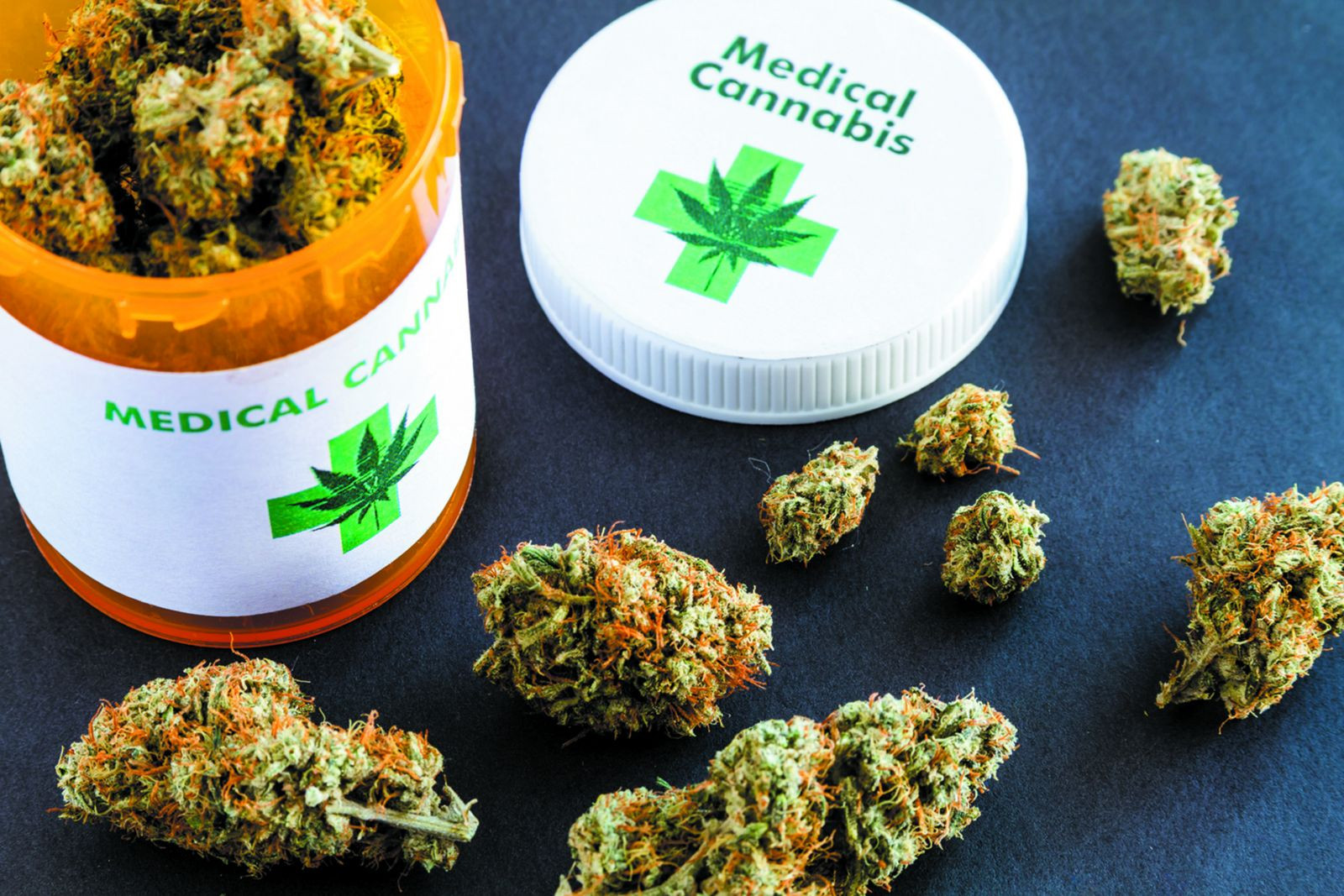Understanding the Legal Landscape Surrounding Medical Marijuana Worldwide
You're likely aware that mindsets towards clinical cannabis are shifting worldwide, however the lawful structures can be confusing. Some countries have accepted it, while others stay purely opposed. Recognizing these differences is crucial, especially as individual needs and public perceptions evolve. What drives these differences, and exactly how do they impact gain access to for people seeking alleviation? The solutions might stun you.
Historical Context of Clinical Cannabis Regulation
As you discover the historical context of clinical marijuana regulation, you'll discover that its roots stretch back thousands of years. Ancient cultures, from the Chinese to the Greeks, acknowledged marijuana for its medical residential or commercial properties. In 2737 BC, Chinese Emperor Shen Nong recorded its usage for numerous ailments. By the first century AD, Dioscorides, a Greek medical professional, consisted of cannabis in his pharmacopoeia, highlighting its efficiency in dealing with pain and inflammation.
Fast forward to the 19th century, when Western medicine began to welcome cannabis much more extensively. Physicians prescribed it for every little thing from migraines to labor pains. However, the early 20th century saw a change, as social perceptions changed, resulting in stricter regulations and stigmatization.
Comprehending this abundant background assists you value the complexities of modern medical marijuana regulations. It's a journey with time that discloses the advancing connection in between culture and this powerful plant.
Current Legal Status by Region

North America Introduction
Steering through the landscape of clinical marijuana laws in North America discloses a jumble of guidelines that vary significantly by region. In the United States, some states have totally welcomed clinical marijuana, permitting people access through dispensaries, while others preserve stringent prohibitions. Maneuvering through these varied regulations can be difficult, as each territory has its own requirements for obtaining medical cannabis, including qualifying conditions and application processes.
Europe's Diverse Laws
Steering via the legal landscape of medical marijuana in Europe can be intricate, given the substantial variations in regulations across different nations. In some countries, like Germany and Italy, medical cannabis is legal and accessible with a prescription. As you check out these diverse regulations, it is crucial to stay informed, as legislations can change rapidly and vary greatly from one nation to another.
Asia-Pacific Legal Trends
The Asia-Pacific region showcases a quickly evolving landscape for medical cannabis legislations, reflecting a mix of conservative and dynamic strategies. Nations like Australia and New Zealand have embraced legalization, offering controlled accessibility to clinical marijuana. In Australia, people can get prescriptions, while New Zealand recently passed a vote to enable medical usage.
On the various other hand, countries like Japan and South Korea keep stricter policies, enabling just limited accessibility to cannabis-derived products. In spite of these restrictions, public point of view is changing, with enhancing require reform.
As you navigate this facility landscape, remain educated concerning neighborhood legislations, as they can differ substantially from one nation to one more, affecting person gain access to and sector development in the region.
Trick Countries Leading the Means in Clinical Cannabis
As you explore the landscape of medical marijuana, you'll find numerous countries establishing impressive legalization turning points. These nations not just establish regulatory structures that ensure safe access but additionally lead the method in medical research advancements. Understanding their strategies will offer you useful insights right into the future of marijuana use in healthcare.
Legalisation Milestones Achieved
While many countries come to grips with the intricacies of cannabis policy, a number of have made substantial strides in legalizing clinical cannabis, setting vital precedents. copyright ended up being a leader in 2001, allowing patients access to medical cannabis, leading the method for various other countries. In 2018, Australia did the same, developing a framework for prescription cannabis, which has given that expanded. Germany signed up with the motion in 2017, making it possible for doctors to recommend medical cannabis to individuals in need. At the same time, in the USA, various states have legalized medical cannabis, creating a patchwork of legislations that influence public perception and plan. These turning points highlight an expanding approval of clinical marijuana, urging more countries to reassess their positions and accept possible health benefits.
Regulatory Structures Discussed
Understanding the governing frameworks controling clinical cannabis is important for grasping exactly how various countries approach its use. The United States offers a jumble of policies, with states like The golden state and Colorado leading in dynamic policies, yet federal legislations still develop challenges. By acquainting on your own with these frameworks, you can better comprehend the international landscape of medical cannabis.
Medical Research Study Developments
Countries around the globe are making significant strides in medical cannabis research study, leading to a far better understanding of its therapeutic capacity. In the United States, establishments like the National Institutes of Wellness (NIH) are moneying studies on cannabis's impacts on persistent pain and epilepsy. As these nations push ahead, you'll witness an evolution in medical techniques and a more clear image of exactly how cannabis can boost person results around the world.
Obstacles and difficulties to Accessibility
Accessing medical marijuana can be filled with challenges that originate from differing state regulations and regulations. You may find that in some states, the process to obtain a clinical marijuana card is challenging and prolonged, calling for substantial documents or appointments with accepted doctor. In addition, even if you qualify, the number of dispensaries can be limited, making it hard to find a neighboring source.
Stigma surrounding marijuana usage can also create obstacles, as some doctor useful site could be hesitant to go over or prescribe it. Moreover, insurance protection for clinical marijuana is frequently lacking, requiring you to pay out-of-pocket. Lastly, in nations where cannabis stays prohibited, the threats of lawful repercussions can discourage individuals from looking for the therapy they require. Guiding with this complex landscape can feel frustrating, but understanding these difficulties is crucial for any person considering clinical cannabis as a therapeutic alternative.
Influence of Clinical Cannabis on Health And Wellness Outcomes
While lots of individuals continue to be skeptical concerning marijuana, research study increasingly reveals its potential advantages for various health problems. You may be amazed to learn that clinical marijuana can assist minimize chronic discomfort, minimize inflammation, and take care of signs and symptoms of stress and anxiety and anxiety (Kentucky Medical Cannabis Doctor). For patients fighting problems like epilepsy or several sclerosis, cannabis has demonstrated significant therapeutic results, supplying alleviation when traditional treatments fail
Additionally, research studies suggest that some parts of marijuana, such as CBD, can improve overall top quality of life for people undergoing therapies like radiation treatment. It's vital to take into consideration that individual responses to cannabis can differ extensively, so what benefit one individual might not help one more. As you discover the prospective impact of medical cannabis on wellness results, speak with and keep an open mind with healthcare experts to tailor a treatment plan that suits your one-of-a-kind requirements and situations.
The Duty of Medical Care Providers in Patient Gain Access To
As you browse the complexities of medical cannabis legislations, it is important to identify the pivotal function health care providers play in client accessibility. These specialists function as indispensable guides, assisting patients recognize their choices and navigate lawful demands. They can examine whether clinical marijuana is ideal for your problem and provide documentation required for legal access.
Additionally, doctor typically inform individuals regarding the prospective benefits and dangers of cannabis use, making sure notified decisions. They can suggest proper stress, does, and methods of consumption tailored to private demands. Their support is necessary, particularly in regions where regulations vary substantially.

Future Patterns and Predictions for Clinical Cannabis Regulations
Health care providers will certainly continue to form the landscape of clinical marijuana regulations as they support for individual needs and involve with policymakers. You can expect a growing pattern towards more inclusive legislation that recognizes the restorative benefits of cannabis. As research expands, more nations will likely take on laws that help with gain access to for clients struggling with different conditions.
Popular opinion is moving, too, with boosting approval leading the way for reform - Kentucky Medical Cannabis Doctor. You could see a surge in medical cannabis programs tailored to details demographics, such as elders and experts
Furthermore, as health care systems incorporate marijuana into therapy protocols, insurers might begin covering cannabis-related expenses, better legitimizing its use.
Lastly, international cooperations could arise, resulting in standard regulations and quality assurance measures. On the whole, the future of medical marijuana legislations appears vibrant and promising, driven by proof, campaigning for, and patient-centered treatment.
Regularly Asked Concerns
Just How Do International Treaties Affect Medical Marijuana Regulation?
International treaties can form your nation's clinical cannabis regulations by setting guidelines or limitations. When countries comply with these contracts, it usually influences neighborhood legislation, making it crucial for you to remain notified on changes.
What Are the Adultness Needs for Clinical Marijuana Use?
The adultness for medical marijuana use varies by jurisdiction. In numerous locations, you have to be at least 18, review however some permit minors with parental approval. Always examine neighborhood regulations before waging medical marijuana.
Can Employers Fire Employees for Medical Cannabis Usage?
Yes, companies can fire you for medical marijuana usage, depending on state laws and firm policies. If your task requires drug screening or if cannabis affects your efficiency, they could act. Constantly check your work environment guidelines.
Exist Restrictions on Medical Cannabis Marketing?
Yes, there are limitations on medical cannabis advertising and marketing. You'll discover laws differ by jurisdiction, usually restricting misleading insurance claims and calling for details wellness warnings. It's important to check regional legislations to ensure compliance prior to advertising and marketing.
Just How Do Medical Cannabis Laws Differ for Veterans?
Clinical cannabis regulations for professionals frequently include special stipulations, allowing easier access or advantages. Some states focus on veteran needs, while others might restrict usage. It's crucial to check your regional guidelines for specifics.
While many nations grapple with the intricacies of marijuana policy, a number of have made considerable strides in legislating medical cannabis, setting vital criteria. In the United States, different states have legalized medical cannabis, developing a jumble of regulations that influence public perception and plan.Accessing clinical cannabis can be stuffed with obstacles that stem from differing state legislations and click to find out more regulations.As you navigate the intricacies of medical cannabis laws, it is vital to identify the critical duty medical care providers play in person access.Health care carriers will certainly proceed to shape the landscape of clinical cannabis regulations as they promote for individual needs and engage with policymakers.